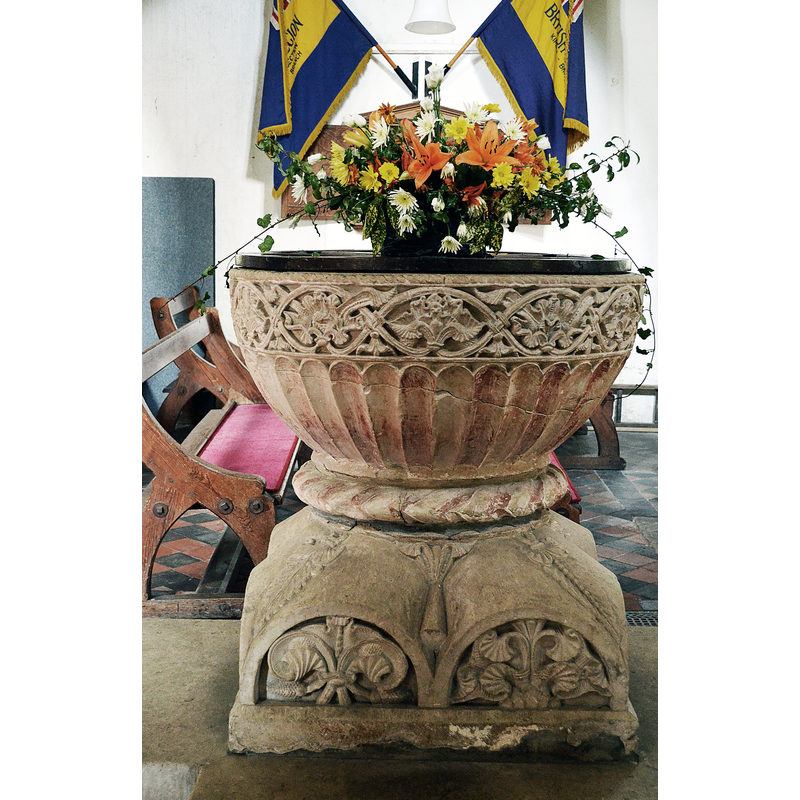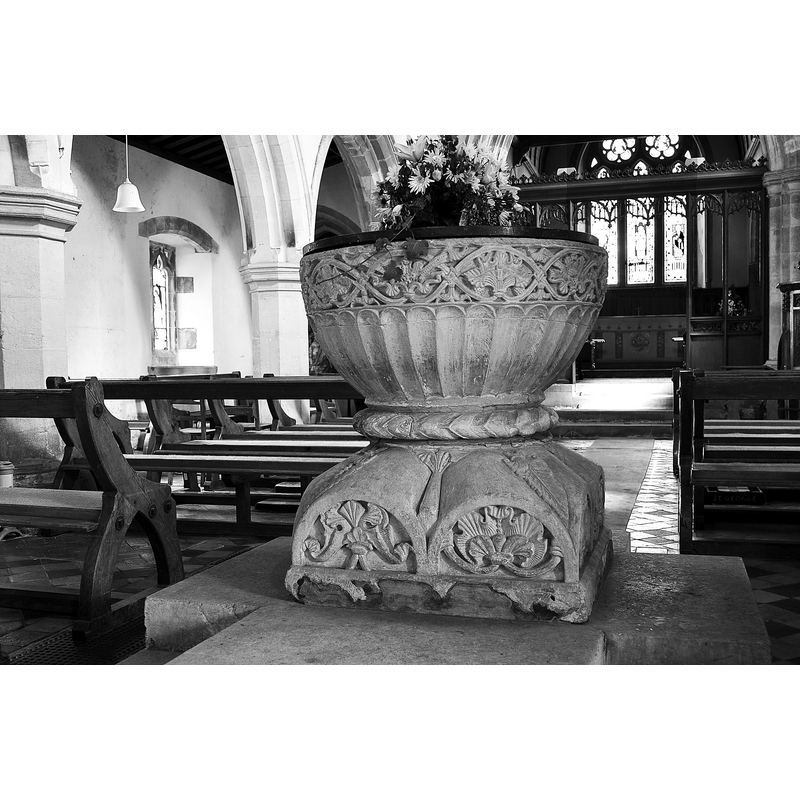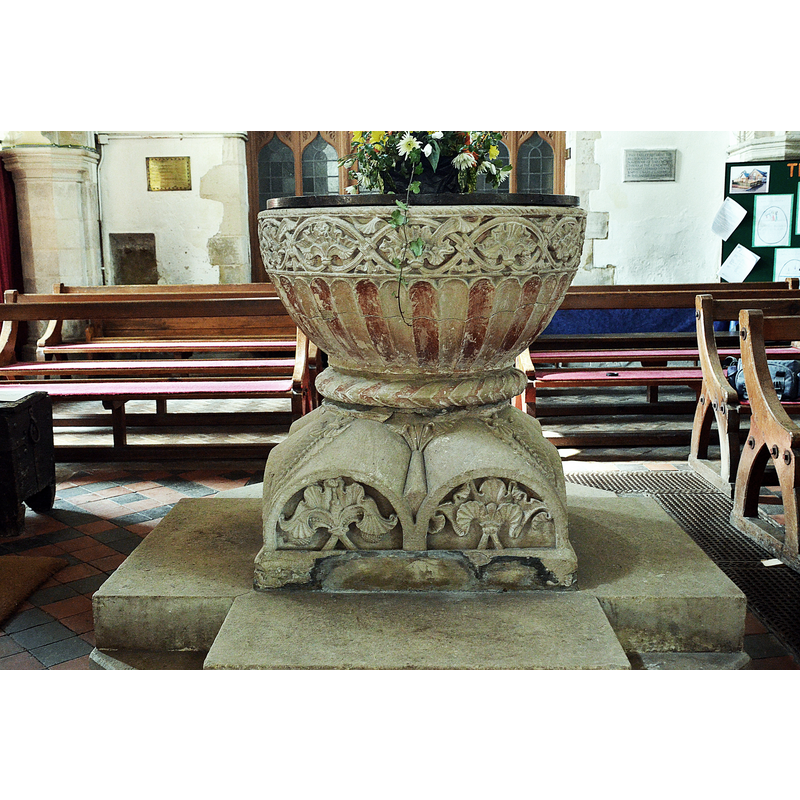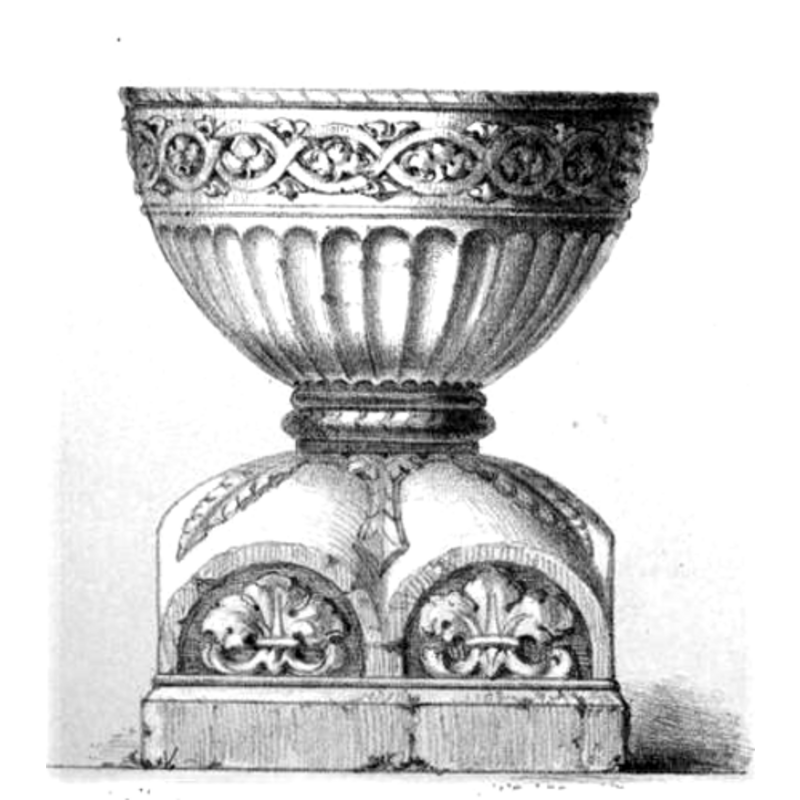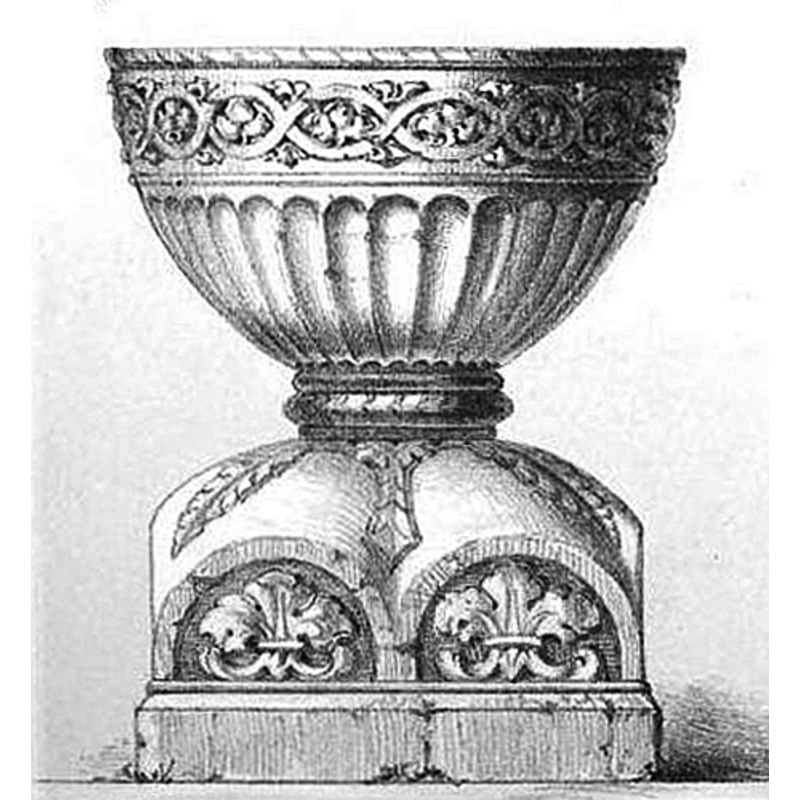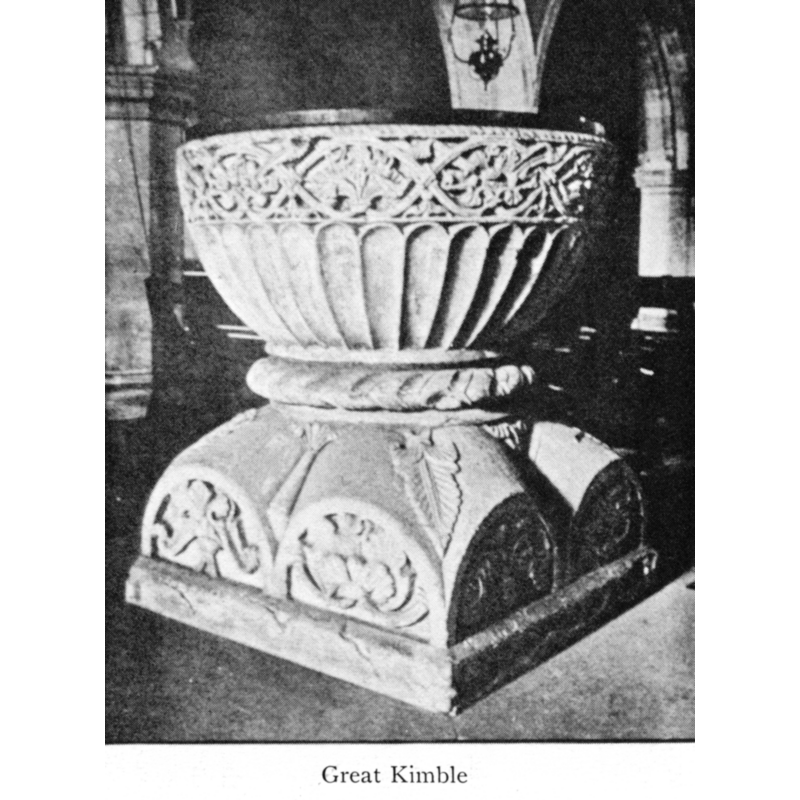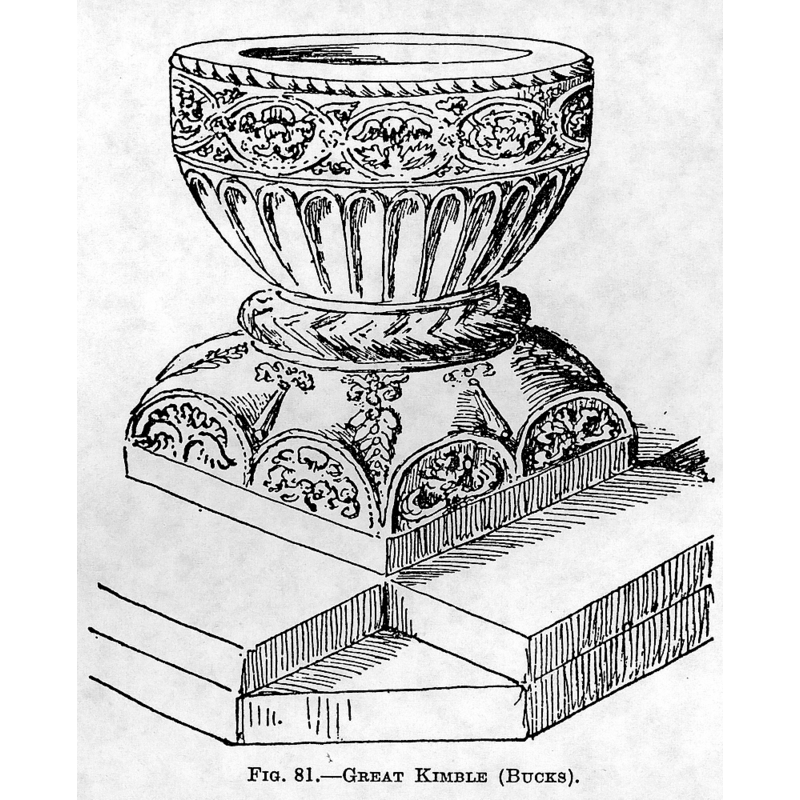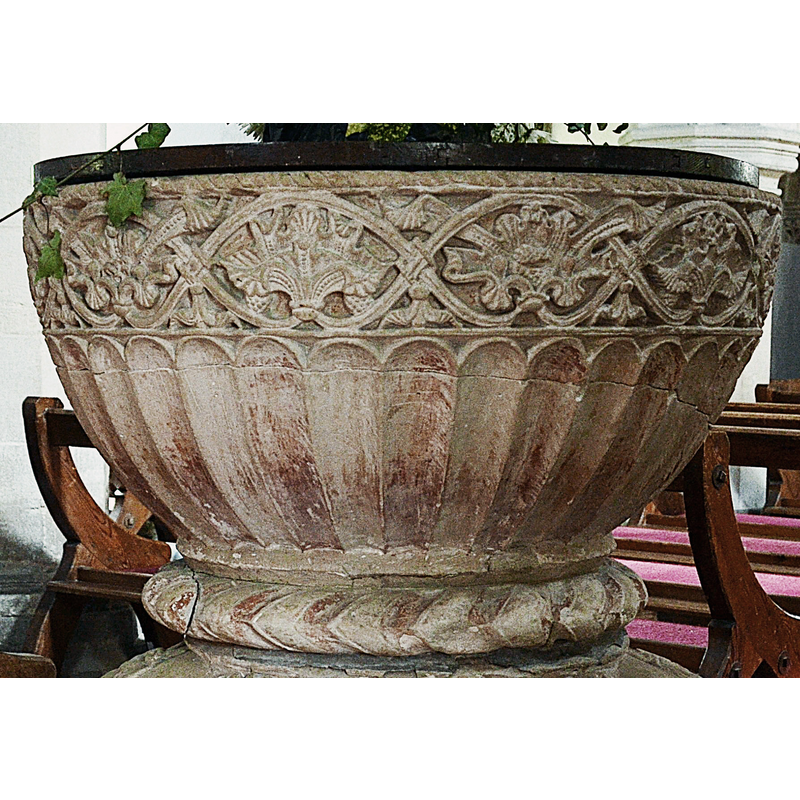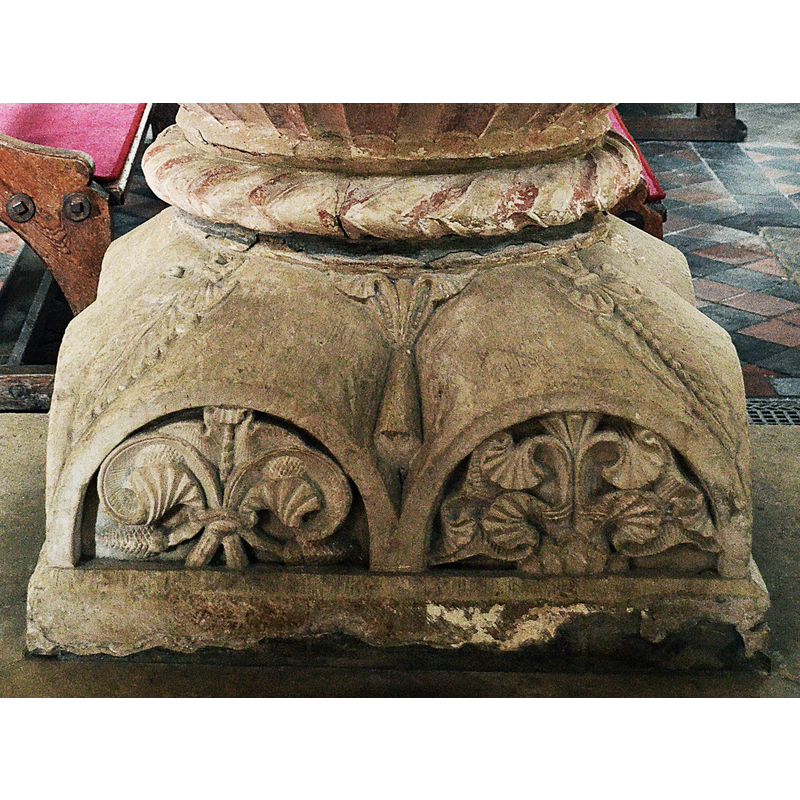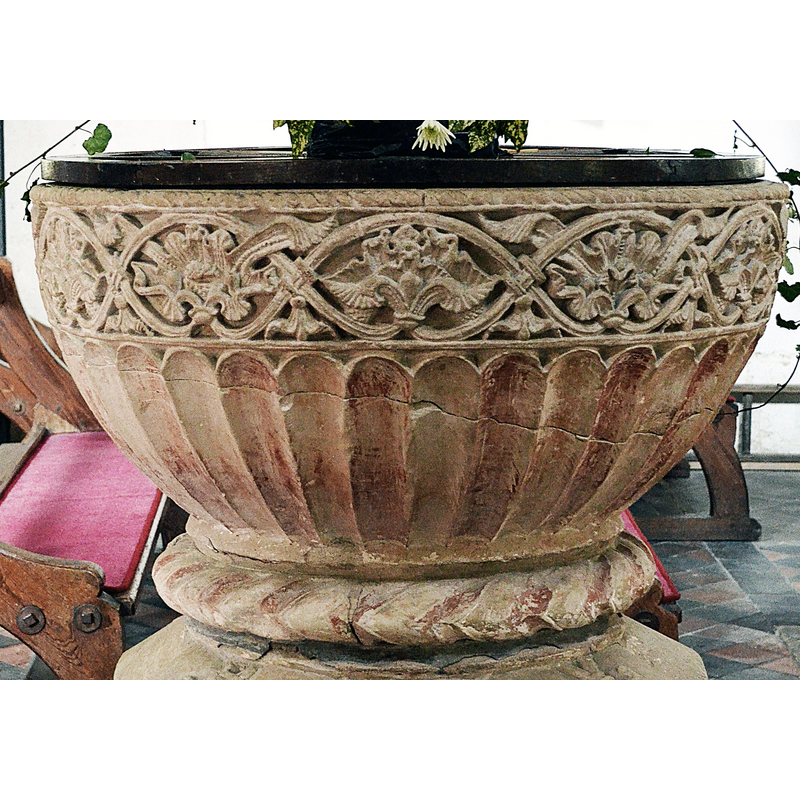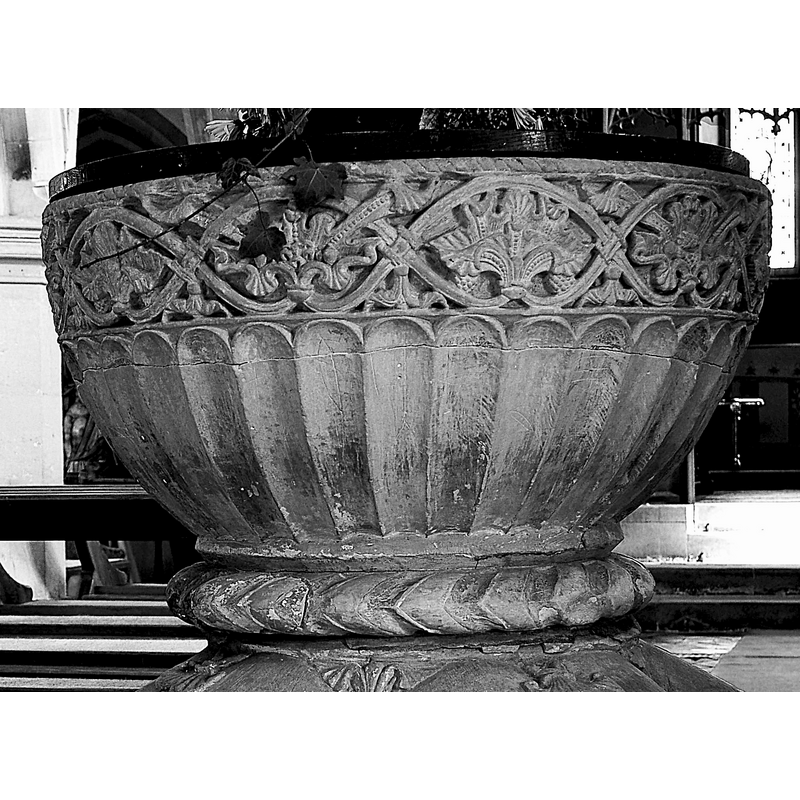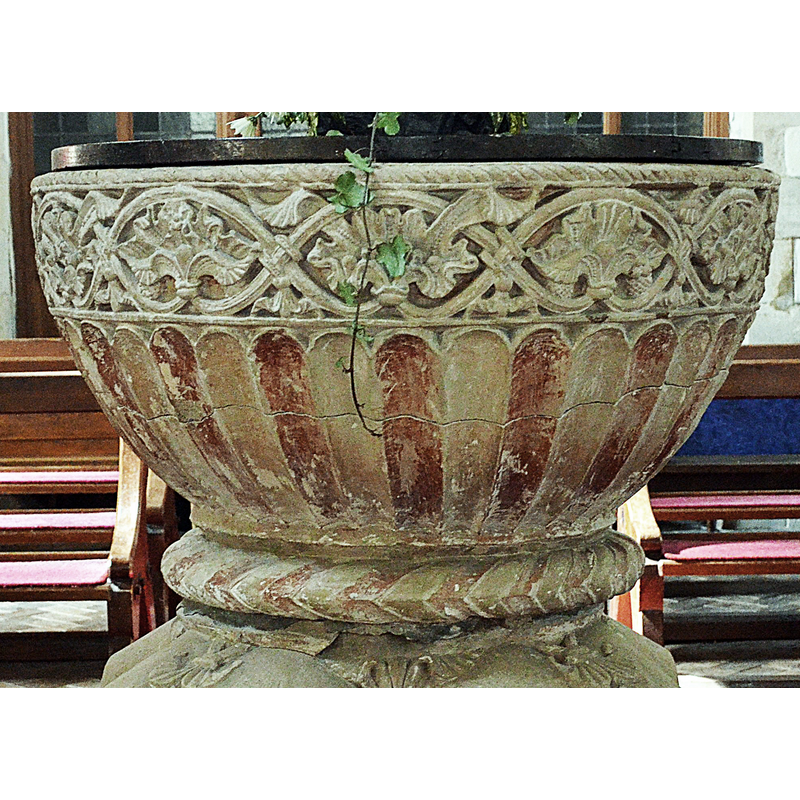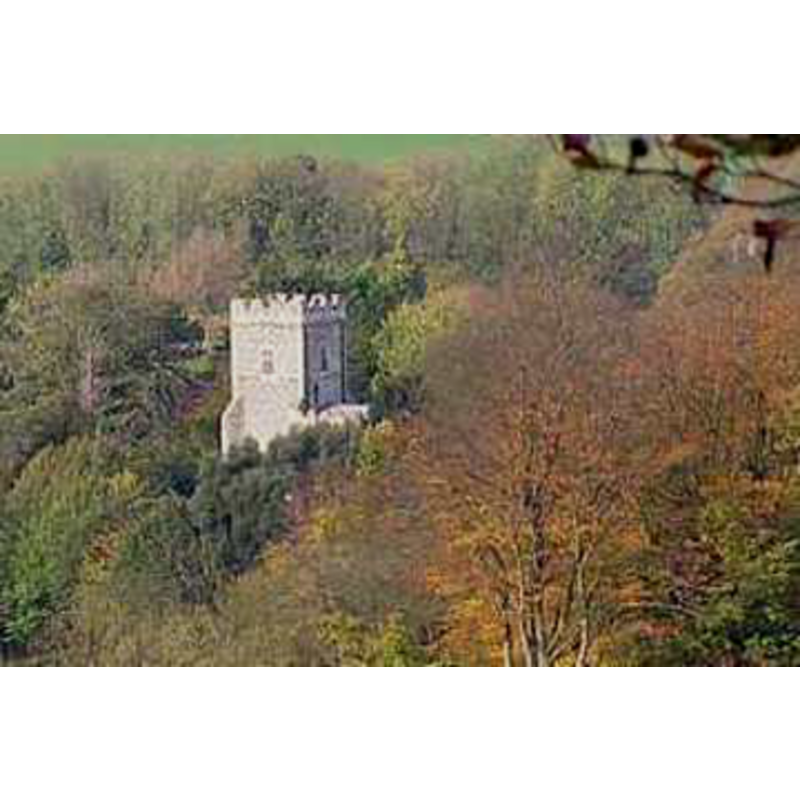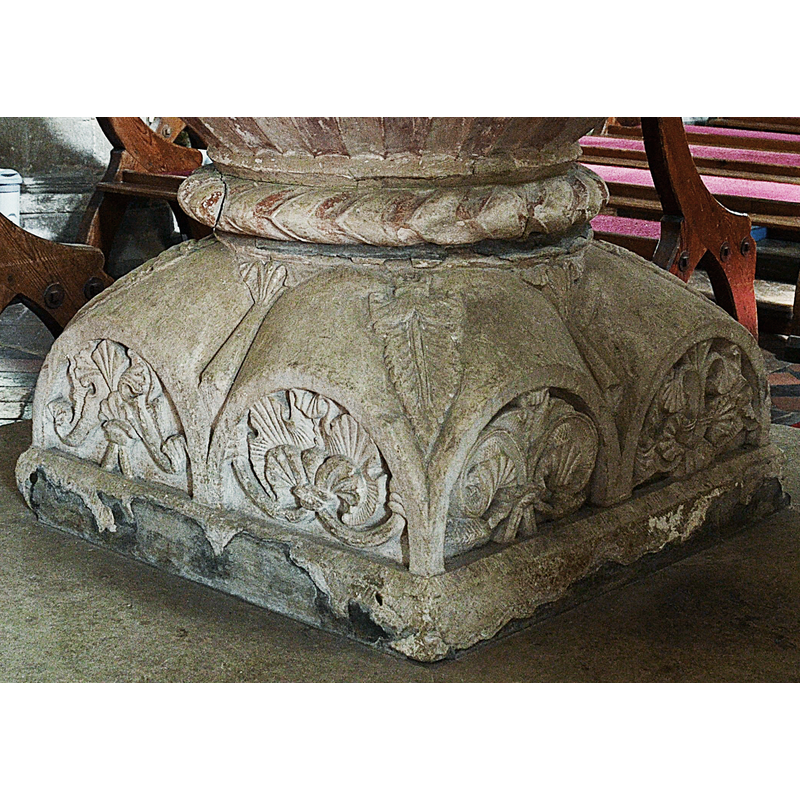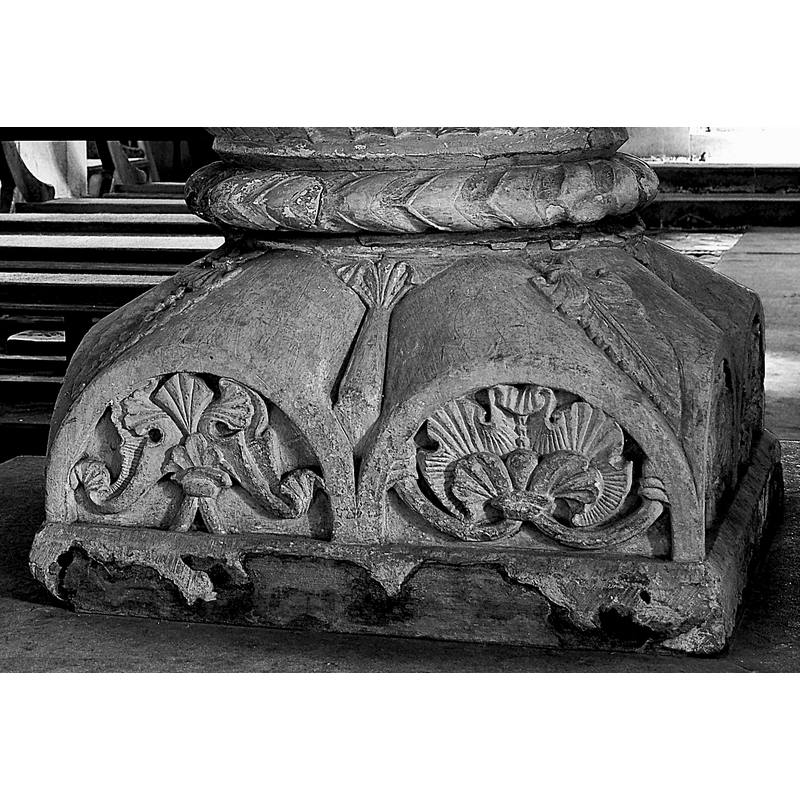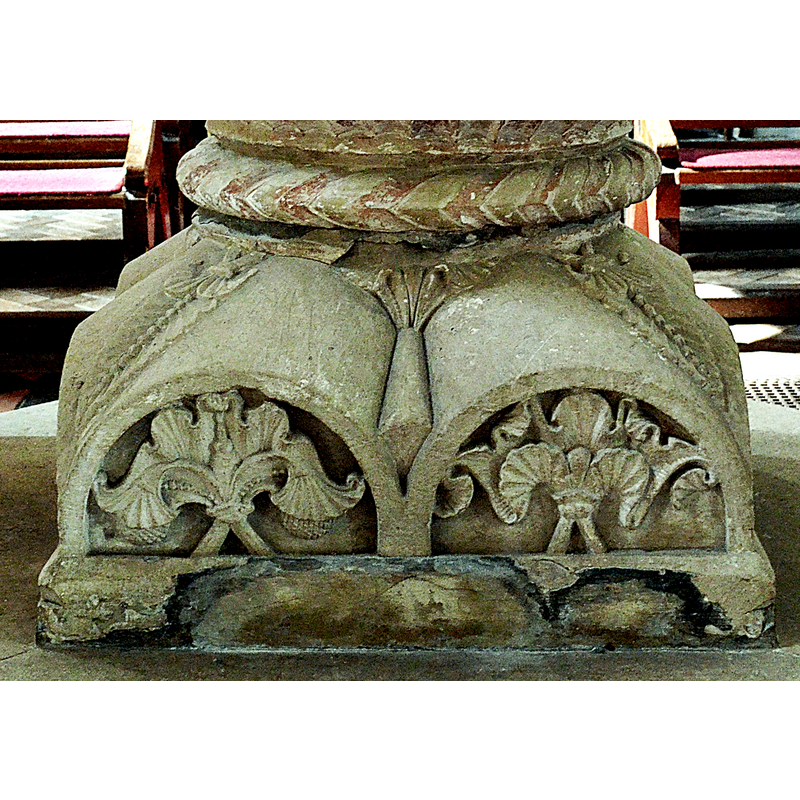Great Kimble / Great Kimbell / Chenebella / Chenebelle / Kenebell / Magna Kymbell / Magna Kynebell
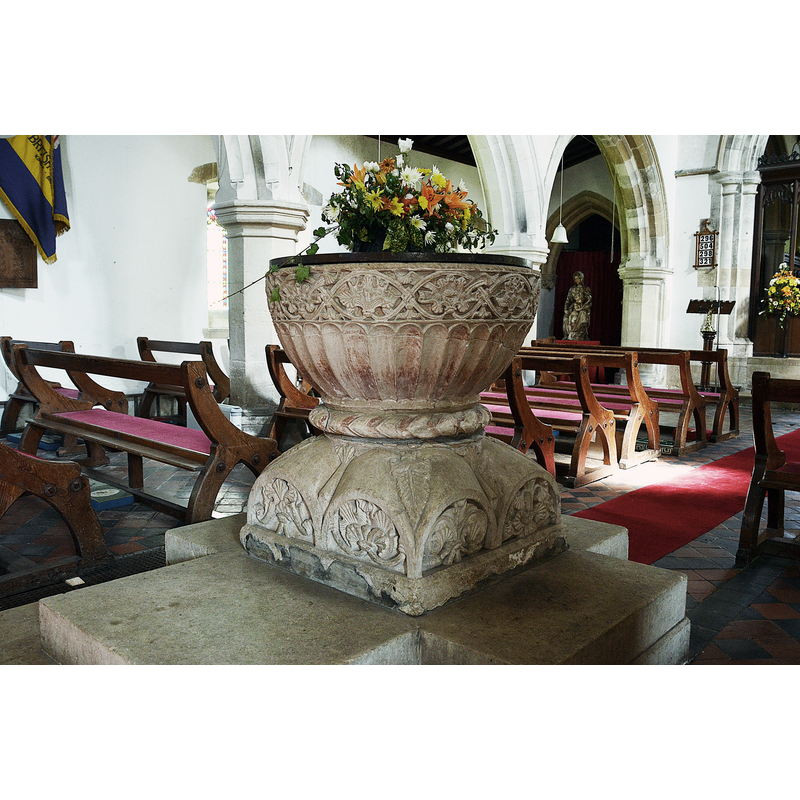
Image copyright © Timothy Marlow, 2014
Image and permission received (letter of 26 October 2013)
Results: 21 records
view of font and cover in context - northwest side
view of font and cover - north side
view of font and cover in context - west side
view of font and cover in context - east side
view of font
view of font
view of font and cover
view of font
view of basin - northwest side
design element - motifs - rope moulding
design element - patterns - ribbed - concave
view of basin - north side
design element - motifs - vine - acanthus
view of basin - west side
view of basin - east side
view of church exterior - tower
Copyright Statement: Image copyright © Ken Goodearl, 2007
Image Source: digital photograph by Ken Goodearl [www.petergoodearl.co.uk/ken/aylesburyfonts/aylesburyfont_pics.htm#aylesbury] [accessed 31 October 2007]
Copyright Instructions: Permission received (email of 29 Oct 2007)
view of base - northwest side
design element - motifs - foliage
Scene Description: on the faces of the cushion base and in the upper spandrels of the cushions
Copyright Statement: Image copyright © Timothy Marlow, 2014
Image Source: detail of a photograph taken 30 April 2013 by Timothy Marlow
Copyright Instructions: Image and permission received (letter of 26 October 2013)
view of base - north side
view of base - west side
INFORMATION
Font ID: 01334KIM
Object Type: Baptismal Font1
Font Century and Period/Style: 12th - 13th century, Late Norman / Transitional?
Workshop/Group/Artisan: Aylesbury group
Cognate Fonts: Aylesbury, Bledlow, Little Missenden, Risborough Priors, Weston Turville
Church / Chapel Name: Parish Church of St. Nicholas
Font Location in Church: Inside the church, at the W end of the aisle
Church Patron Saint(s): St. Nicholas of Myra
Church Address: Aylesbury Road, Great Kimble, Buckinghamshire, HP17 0XS
Site Location: Buckinghamshire, South East, England, United Kingdom
Directions to Site: Located about 10 km S of Aylesbury
Ecclesiastic Region: Diocese of Oxford
Historical Region: Hundred of Stone [in Domesday]
Additional Comments: traces of paint on the sides of the font / painted font
Font Notes:
Click to view
There is an entry for [Great] Kimble [variant spelling] in the Domesday survey [http://domesdaymap.co.uk/place/SP8206/great-kimble/] [accessed 8 November 2014], but it mentions neither cleric nor church in it. The font here is illustrated in Batty (1848), who notes: "very like that [font] at Aylesbury, with an addition of an upper edge of cable moulding. Remains of vermilion colour appear on the grooved sides." [NB: the engraving is probably by P.H. de la Motte from a drawing by E.A.R.] Both Rickman (1850) and Sheahan (1862) date is as Norman and refer to Batty [cf. supra]. Described in Cox & Harvey (1907) as a chalice-shaped font of the Norman period, "obviously done by the same workman or workmen" as the fonts at Little Missenden, Risborough Priors and Bledlow. The Victoria County History (Buckingham, vol. 2, 1908) notes: "The church of Great Kimble was granted by Giffard Palefridus in the 12th century to the abbot and convent of Missenden. [...] The early history of the church has been much obscured by recent drastic restorations, but sufficient remains to show that the aisles were added about the middle of the 13th century, at which time the nave was of the same size as at present. [...] The font is of the common local type, of late 12thcentury date with a circular scalloped bowl and square scalloped base, the stem being moulded and the rim and base of the bowl richly ornamented with foliage." Described and illustrated in Bond (1908) as a Norman chalice-shaped font; the rounded basin has concave rib pattern and a horizontal band of foliage on the upper basin side; near the rim is a rope moulding. The centre ring moulding has either chevron or rope motif all around. The square base has a double-arch shape on top with vegetable ornamentation like an inverted cushion capital. Very similar in shape to the font at Aylesbury. Described in the RCAHM (Buckinghamshire, 1912), with date in the late-12th century. Described and illustrated in Tyrrell-Green (1928) as an example of font from the Aylesbury group. In Pevsner (1960). Dated 12th century in Stockner (1997). In Drake (2002). The font appears to be in fair shape all around, with minor damage; there are clear traces and patches of paint left on the surface of the font, especially on the fluted pattern and on the centre ring moulding, chiefly red.
Credit and Acknowledgements: We are grateful to Ken Goodearl, of [http://www.petergoodearl.co.uk/ken/aylesburyfonts/aylesburyfont_pics.htm#aylesbury] for his photographs of church and font]
COORDINATES
UTM: 30U 651435 5735032
Latitude & Longitude (Decimal): 51.7457, -0.8064
Latitude & Longitude (DMS): 51° 44′ 44.52″ N, 0° 48′ 23.04″ W
MEDIUM AND MEASUREMENTS
Material: stone, type unknown
Font Shape: chalice-shaped, hemispheric, mounted
Basin Interior Shape: round
Basin Exterior Shape: round
Rim Thickness: 10 cm [calculated]
Diameter (inside rim): 67.5 cm*
Diameter (includes rim): 87.5 cm*
Basin Depth: 30 cm*
Font Height (less Plinth): 107.5 cm*
Notes on Measurements: * [in ft./in. in Batty (1848)
LID INFORMATION
Material: wood, oak?
Apparatus: no
Notes: round and flat, with locking mechanism; appears old
REFERENCES
- Victoria County History [online], University of London, 1993-. URL: https://www.british-history.ac.uk.
- Batty, Robert Eaton, Some particulars connected with the history of baptismal fonts: being a paper read at the quarterly general meeting of the Architectural and Archaeological Society for the County of Buckingham, London: F. & J. Rivington, 1848, p. 19 and plate
- Bond, Francis, Fonts and Font Covers, London: Waterstone, 1985 c1908, p. 51, 151 and ill on p. 56
- Clapham, Alfred William, English Romanesque Architecture after the Conquest, Oxford: Clarendon Press, 1934, p. 155
- Cox, John Charles, English Church Furniture, New York: E.P. Dutton & Co., 1907, p. 187
- Drake, Colin Stuart, The Romanesque Fonts of Northern Europe and Scandinavia, Woodbridge, Suffolk: Boydell Press, 2002, p. 26, 27, 175 and fig. 1
- Friar, Stephen, The Sutton Companion to Churches, Thrupp, Stroud (Gloucs.): Sutton Publishing, 2003, p. 202
- Great Britain. Royal Commission on Historical Monuments (England), An inventory of the historical monuments in Buckinghamshire, London: H.M. Stationary Office, 1912-, vol. 1: 166
- Parker, John Henry, The Ecclesiastical and architectural topography of England: Oxfordshire, Oxford, London: Published under the sanction of the Central Commitee of the Archaeological Institute of Great Britain and Ireland [by] John Henry Parker, 1850, [entry no.] 191
- Pevsner, Nikolaus, Buckinghamshire, Harmondsworth: Penguin, 1960, p. 19, 144
- Sheahan, James Joseph, History and topography of Buckinghamshire, comprising a general survey of the county, preceded by an epitome of the early history of Great Britain, London; Pontefract: Longman, Green, Longman, and Roberts; William Edward Bonas [...], 1862, p. 166
- Stocker, D.A., "Fons et origo: The Symbolic Death and Resurrection of English Font Stones", I (1997b), Church Archaeology, 1997, pp. 17-25; p. 20ff
- Tyrrell-Green, E., Baptismal Fonts Classified and Illustrated, London: Society for Promoting Christian Knowledge: The Macmillan Co., 1928, p. 123 and fig. 81
